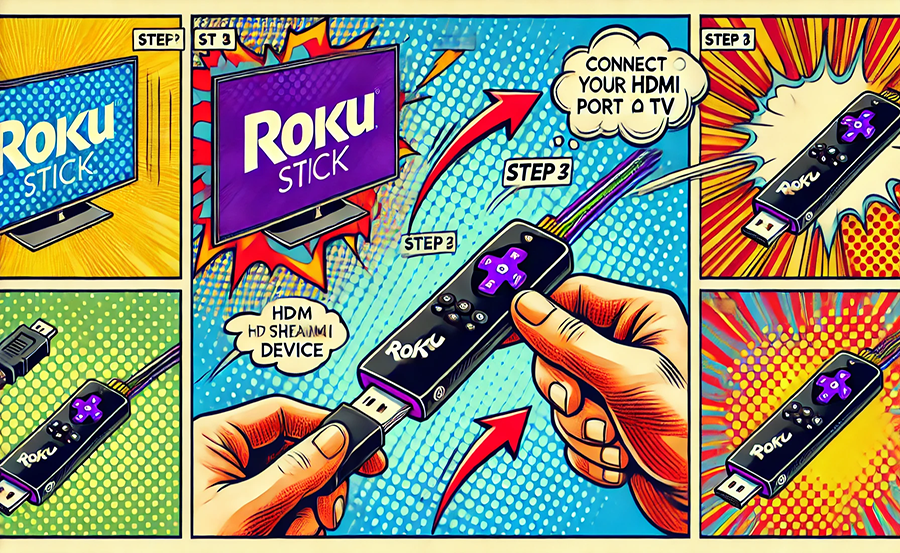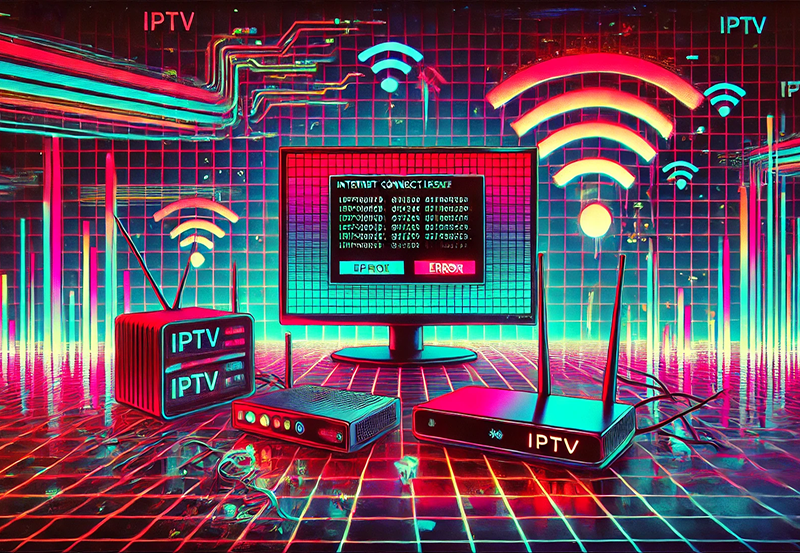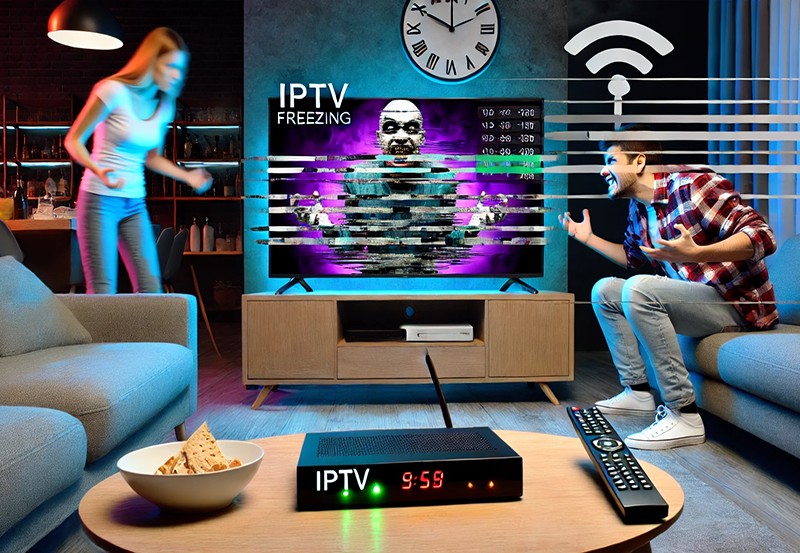Interruption in IPTV services can be a significant source of frustration, especially when you’re trying to relax with your favorite show. IPTV—Internet Protocol Television—provides an unparalleled viewing experience with a wide array of content at your fingertips. However, it’s not without potential issues. In this article, we’ll explore practical solutions to common disconnection problems, ensuring you get the best IPTV experience possible.
Buy 1 Year IPTV Subscription and Enjoy Unlimited Content
Understanding Common IPTV Disconnection Issues
When your IPTV service isn’t performing as expected, it can be due to a variety of reasons. Understanding these causes is the first step to solving them effectively. Let’s examine some of the typical issues you might face.
Network Connectivity Problems
One of the most common causes of IPTV interruptions is network connectivity issues. This could be due to poor Wi-Fi signal strength, router settings, or even external factors like network congestion. An unstable connection often results in buffering or complete service loss.
It might be tempting to blame the service provider immediately, but it’s crucial to check your network setup first. A simple check of your internet speed can offer insights into whether your connection is robust enough to support IPTV streaming.
Incompatible IPTV Settings
Settings mismatched with your IPTV service requirements can lead to disruptions. This includes incorrect video output resolution or unsupported codecs, which complicate the streaming process. These technical glitches are often overlooked because they are not so apparent to the average user.
To rectify this, ensure all your settings are in accordance with your IPTV provider’s recommendations. Sometimes, a minor tweak can make a significant difference in stream quality.
Practical Solutions for Improving IPTV Stability
Solving IPTV issues doesn’t necessarily require advanced technical skills. With a few strategic adjustments, you can vastly improve your viewing experience. Here, we’ll explore several solutions to help mitigate disconnection issues and ensure you enjoy high-quality IPTV service.
Optimizing Your Network Setup
Begin by ensuring your network is optimized for streaming. Here are a few steps you might consider:
- Place your router in a central location to maximize Wi-Fi coverage.
- Consider using a wired connection, such as Ethernet, for more stable and faster internet.
- Check and update your router’s firmware to the latest version.
The key is to prevent bottlenecks in your network, helping to stabilize IPTV streams.
Adjusting IPTV Configuration
Review your IPTV settings to ensure they align with your device capabilities. Common adjustments include:
- Setting the correct resolution based on your device’s display.
- Ensuring your box or software is updated for compatibility with your service specs.
Each setting enhances how streams are decoded and displayed on your screen, contributing to fewer interruptions.
Advanced Troubleshooting Techniques
Sometimes, basic adjustments aren’t enough. In such cases, delving deeper into technical solutions might be necessary. Let’s discuss a few advanced troubleshooting methods that can resolve stubborn connectivity problems.
Using a VPN for Stable Connections
A VPN can help minimize disconnections by providing a stable route between your device and the IPTV provider. It’s especially useful if the ISP throttles streaming traffic, which can cause inconsistencies in connection.
However, choosing the right VPN is crucial. Ensure it’s fast enough to handle streaming without introducing additional latency.
Configuring DNS Settings
DNS settings significantly impact the speed and reliability of your connection to IPTV servers. Switching to well-regarded public DNS providers like Google DNS or Cloudflare can sometimes increase connection reliability.
Updating your DNS involves accessing your network settings and manually changing to the desired DNS addresses. While a bit technical, this adjustment can drastically improve the IPTV experience.
Best IPTV Apps for Apple TV in 2024
Ensuring Long-Term IPTV Stability
Sustained stability in IPTV requires regular maintenance and monitoring. By adopting certain habits, you can maintain consistent performance over the long term.
Regular Device and Software Updates
Keeping all your devices updated ensures compatibility with the latest network protocols and IPTV service enhancements. Software updates often introduce new features that can optimize performance and iron out existing bugs.
Make it a habit to check for updates periodically, ensuring everything runs smoothly and you’re leveraging the best that your IPTV service has to offer.
Monitoring Network Health
Regularly checking your network’s health is crucial. Tools are available for scanning network traffic which can help identify potential issues early. This proactive approach allows you to address problems before they affect your IPTV streaming.
Set benchmarks for network speed that aligns with high-quality IPTV requirements and monitor deviations promptly to prevent long-term issues.
Empowering Your IPTV Experience
While technical problems can seem daunting, employing these solutions can significantly enhance your viewing experience. Remember, maintaining a high-quality IPTV service is not just about fixing issues as they arise but preventing them from happening in the first place.
Explore various service options and configurations until you find the setup that consistently delivers the best IPTV experience tailored to your needs.
Common Questions About IPTV Disconnection Issues

Why does my IPTV keep buffering?
Buffering typically occurs due to insufficient data transfer speeds between your device and the IPTV server. Ensuring your internet speed meets the minimum requirements for streaming and optimizing your network can help reduce buffering.
Can a VPN help with IPTV stability?
Yes, a VPN can often stabilize connections by bypassing ISP throttling and providing a direct route to IPTV servers. However, it’s essential to select a VPN that offers adequate speed for streaming.
How do I check my IPTV settings?
You can access IPTV settings through your set-top box or IPTV app. Look for options related to video resolution, codecs, and network configurations to ensure they match the recommendations of your IPTV service provider.
Is a wired connection better for IPTV?
In most cases, a wired connection is indeed better than wireless because it reduces latency and minimizes the risk of interference. It provides more stable speeds, enhancing the CSS 속성] overall IPTV experience.
What are common IPTV connection problems?
Common issues include unstable internet connections, incorrect device settings, router issues, and ISP throttling. Identifying the root cause is the first step toward resolving these problems effectively.
Are device and software updates essential for IPTV?
Absolutely. Updates are crucial as they often include fixes for known issues, performance enhancements, and new features that improve both security and functionality of your IPTV setup.
How AI is Shaping the Future of IPTV Services





